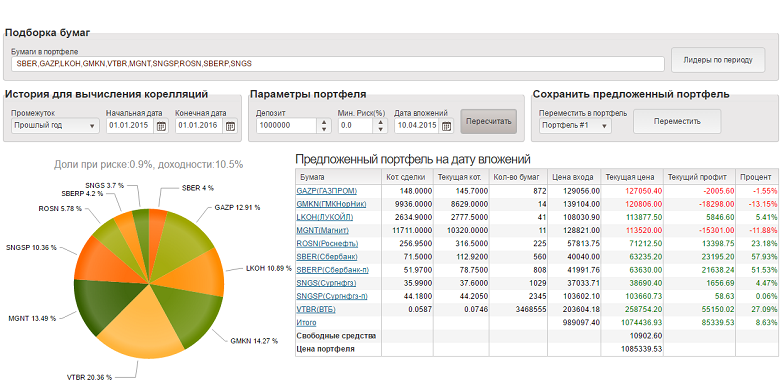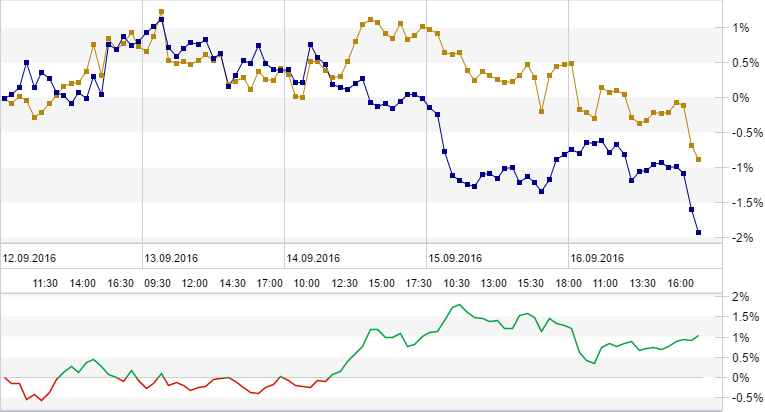 |  |  | |||||||||||
 |
|
||||||||||||
 |  |  | |||||||||||||||
 |
|
||||||||||||||||

Техническая поддержка
ONLINE
 |  |  | |||||||||||||||||
 |
|
||||||||||||||||||
Ранняя история церкви - урок 1
ruticker 08.03.2025 21:05:03 Текст распознан YouScriptor с канала Return to Zion Community (HaifaTheologicalInstitute)
распознано с видео на ютубе сервисом YouScriptor.com, читайте дальше по ссылке Ранняя история церкви - урок 1
**Father, as we come this evening, we pray that You would be present here. We pray that You would guide our learning and our discussion this evening. May the Lord Jesus Christ be honored in all that is said, and we thank You for bringing us together for this opportunity. We ask that the language barrier would not be difficult and that You would help me as I teach, to teach clearly for Your glory. I pray this in the name of Jesus Christ.** What I would like to do this evening is begin at the beginning. I want to talk a little bit about the Jewish background to Christianity and then also something about the pagan background. In both of those, I want to give something of a context, as sometimes it's difficult to tell what you're doing at a particular time. Let me begin with the **Jewish background**. Some of this may be very familiar to you, and if it is, I apologize. Teaching in an American seminary, the students are often ignorant of any kind of Jewish background. So let me just say that I'm not going to try to repeat the entire history of the Old Testament, but let me begin with the period of time that is called the **Hellenistic period**. We're talking approximately 300 years before the coming of Christ and forward. During this period, the Jewish people scattered all over the Mediterranean area. There is a relatively small number of Jews in Palestine and five to six times as many Jews in the diaspora. When we read Scripture in the New Testament, we're dealing primarily with the Jews who are still in Palestine. It is only well, primarily in Acts, that we come across the Jews in the diaspora. Much like today, the Jews in the diaspora would often return to Palestine for festivals and so forth, but their main venue for teaching and learning was the synagogue, not the temple worship. One of the things that is important to know at this point is the fact that the culture of the Jews in Palestine and that of the Jews in the diaspora is different. The Jews in Palestine spoke Aramaic, which is a form of Hebrew, while the Jews in the diaspora primarily spoke Greek. Many of the Jews in the diaspora had embraced the Hellenistic culture of their time, leading to a mixture of Greek philosophy with Jewish thought. The Greek culture among the Jews was so important that approximately 250 years before Christ, the entire Old Testament had been translated into Greek. The tradition was that there were 72 Jewish scholars who came together and translated it into Greek. However, many of these Jews, particularly those in the diaspora, had stepped away from their Jewish heritage, and their thought patterns were primarily Greek. This is particularly true of Jews who were in positions of government, and it begins to show up in some of the divisions we see in the New Testament among the Jews. In the New Testament, we have primarily three different sections among the Jews. The one that has probably the least influence on the New Testament is a group called the **Essenes**. They practiced a community of goods and lived a simple life, and you really don't find them mentioned in the New Testament at all. The two groups that are mentioned in the New Testament are, first of all, the **Sadducees**. The Sadducees were Hellenized Jews; really, the only thing that they accepted was the Pentateuch because to the Greeks, the concept of resurrection was absurd. I'll talk about this more in a minute, but to the Greeks, the spirit or the soul was much more important than the body. Following the teachings of Plato, they tended to look at the physical world as something that was lower, sometimes even evil. From a Platonic view, your goal in life would be to free your soul from the chains of your body. So, things like the resurrection, particularly physical resurrection, were absurd. They rejected the immortality of the soul, did not believe in angels, and believed in God, but God was way up here somewhere; He was not involved in the day-to-day. They were the intellectuals, if you will, of the time, and ironically, with all of this disbelief, they were the ones who controlled the temple. The Sadducees controlled temple worship because they controlled the office of the high priest. So you have this irony where the very heart of Judaism, the temple worship, is controlled by skeptics—people who saw much of what was being done on the temple grounds as cultural, not necessarily religious. It's not surprising that when Jesus comes on the scene, the Sadducees initially ignore Him as if He was not important. However, when He develops a following and begins to attack the temple worship, they begin to see Jesus as a threat and move quickly into opposition against Him. The other group that we see in the New Testament is one that is perhaps more familiar, and that is the group called the **Pharisees**. At least in American culture, the Pharisees have gotten picked on a lot; we use the word "Pharisee" as a synonym for hypocrite. But the Pharisees were serious about the Word of God. They believed that the Old Testament was the Word of God and that they should follow it. They were secular in their occupations but aligned themselves with the Pharisaical group because they were serious about being obedient to God. They were so serious that they had sat down with the Old Testament and counted all the commandments, which is why they would ask Jesus what the greatest commandment was. You had to keep all 613, but certain ones would be emphasized over others. Interestingly, when Jesus came on the scene and began to teach, He appeared to the people to be another Pharisee because He was also very serious about obedience to the Word of God. Many of the things that Jesus taught could be found in the rabbinical teachings of the time. The issue that Jesus had with the Pharisees was that they had mistaken orthodoxy for piety. In other words, they had substituted outward compliance for a heart for God. This is the very point where Jesus goes after them again and again. What you can see here is Jesus saying He is not removing the law, but the problem is that they have neglected the things that are more important—the things of the heart. By the time we come to the days of Jesus, the Pharisees have begun to neglect the Torah and emphasize the Talmud, so they will talk about traditions. This, by the way, is the explanation for a comment that is made often in the New Testament when they say they listened to Jesus with amazement because He taught as one who had authority, as they interpreted Scripture. But Jesus goes directly to Scripture and interprets it Himself. The conflict that the Pharisees had with Jesus many times is because of the similarity of their teachings. The Pharisees would talk about keeping the law, and on at least two occasions, Jesus will go directly against their understanding of Him and say, "Go and learn what this means: I desire mercy and not sacrifice." Let me show you one other place where you can see this, which is in **Mark chapter 7**. If you want to begin reading at verse 3, they are worried about clean hands because that's the tradition they have received from the elders. Jesus says, "But your heart is far from Me," and they are teaching the traditions of man instead of the commandments of God. So it's no surprise that the Pharisees and Jesus are in regular conflict throughout the Gospels because His teaching exposes their hypocrisy. Yet, many of the Pharisees eventually become believers in Jesus Christ. After the resurrection, they pass into the church and become part of the church. Many of them keep their emphasis on outward obedience, and if I can jump forward a number of years, they will be the ones who are pushing when Gentiles begin to come into the church. These converted Pharisees will insist that they must become Jews if they are going to follow Jesus, and at the very least, they will insist on circumcision and beyond that, many of them will push for keeping all of the traditions of the fathers. We will talk more about that when we get to **Acts 15**. Clearly, Christianity arose out of Judaism. The background for the pagans is somewhat different. The Gentile world is also Hellenized at this point. A simple form of Greek called **Koine Greek** was the language of trade all over the Mediterranean area. All of the educated and even most of the uneducated people at this time spoke Greek, but the political power that ruled them was the **Roman Empire**, and obviously, their language was Latin. So the language of politics was Latin, while the language of culture, trade, and intellect was Greek. Palestine at this time had been conquered by the Romans about 60 years before the birth of Christ. In 47 BC, Herod had been made the governor of Galilee, and then in 40 BC, he was made the king of Judea. Herod was the king at the time that Jesus was born; he was not placed on the throne by the Jewish people but was actually a Roman puppet, and the Jewish people knew that and did not like Herod at all. As you know from the Gospels, Herod made an attempt to kill Jesus when He was a baby. Probably the main reason for that was his hold on the throne was very uneasy. The Romans controlled the entire area and ensured relative peace. In history, there is talk about the **Pax Romana**. The Romans also ensured that commerce would happen freely and tended to be very tolerant toward other peoples, as long as they did not create trouble. For some reason, the Jewish people were always creating trouble, and the Romans did not like the Jews. Judea was the place that they sent the governors they did not like because to the Romans, the Jews were crazy. They were in the hills and would every once in a while come down and attack a Roman cohort and wipe them out. They were convinced the zealots could use those kinds of means to bring about the coming of the Messiah, and they were looking for the Messiah. In their minds, the Messiah was a political figure—someone who would come and throw the Romans out and bring back the days of the greatness of David and Solomon. This again is the background to an event in the New Testament. After Jesus fed the 5,000, it says that He had to move away from them because He knew they were going to try to make Him king. They were sure that a man who could create bread out of almost nothing would make a great king. In the pagan world, the Gentile religions that existed were not satisfying to the people. The Greeks and the Romans were polytheistic in their official religion, and every little town and city had its own protecting god or goddess. In the popular culture, there were gods and goddesses everywhere, and everyone had their own. However, looking back at that time, historians have seen that there was a great spiritual hunger. Part of the reason for that, or how we know that, is because they were actually importing religions from the East for themselves. There was the Earth Mother from farther in the East, and there was also Mithraism. Many of these mystery cults had elements that resembled Christianity. They would have purification rites like baptism; with Mithra, you would be baptized, but you would be baptized in the blood of a bull. For many years, those who studied religion, sociologists of religion, assumed that Christianity borrowed from all of these mystery cults, but it's clear that the origins of Christianity are much different. So, we have a context in the Gentile world where they are hungry for something, and we have a context among the Jewish people where they are looking for the Messiah. It is into this context, at what Paul calls the **fullness of time**, that God sends His Son, Jesus Christ.
Залогинтесь, что бы оставить свой комментарий












